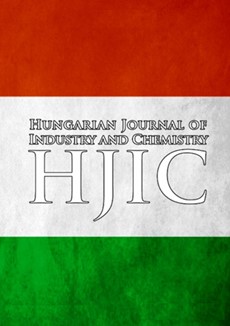ARSENIC, ZINC AND MAGNESIUM ION REMOVAL FROM WATER BY NANOFILTRATION, MODELLING OF REJECTIONS
DOI:
https://doi.org/10.1515/hjic-2001-05Keywords:
Arsenic removal, bivalent ion removal, membrane filtration, mmofiltrationAbstract
The drinking water sources in some parts of Hungary are highly contaminated with arsenic. The recent arsenic removal technologies use chemical treatment combined with filtration, adsorption etc. Nanofiltration, which is a relatively new area of membrane filtration, could be suitable for removing arsenic from well water, and in addition it does not require chemical pretreatment. The nanofiltration membranes remove the bivalent ions, therefore the removal of trivalent and pentavalent forms of arsenic could be presumed too. In our measurements the possibility of the nanofiltration of typical bivalent ions (Zn, Mg) and As (tri- and pentavalent forms) were examined and compared using model solutions. Because of the surprisingly low rejection of As(III) two oxidation agents (KMnO4 and H2O2) were applied to gain removable As(V). On the base of measurements regression equations were developed to calculate the individual ion - rejection. The experimental investigations proved that additive ions in the solution do not influence the individual rejection of a metal ion in this range of concentrations. The joint removal of Zn, Mg, As(III) and As(V) ions from South - Hungarian well water could be well estimated on the base of our regression equations.Downloads
Published
2001-10-12
Issue
Section
Articles
How to Cite
ARSENIC, ZINC AND MAGNESIUM ION REMOVAL FROM WATER BY NANOFILTRATION, MODELLING OF REJECTIONS. (2001). Hungarian Journal of Industry and Chemistry, 29(1), 21-25. https://doi.org/10.1515/hjic-2001-05




